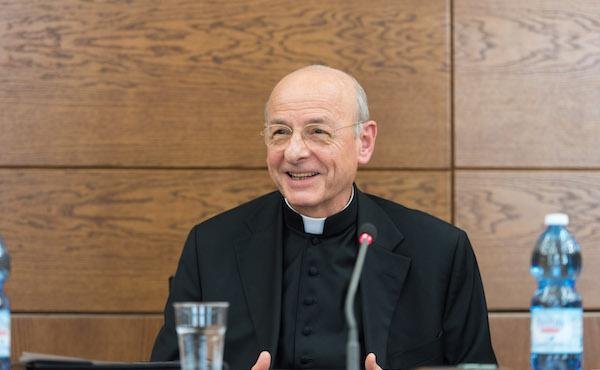The Work of the Future: “Recreating” the World of Human Relationships (link to article published in Aleteia)
On May 1 many countries around the world celebrate International Workers’ Day. The human activity of working involves the person in all of his or her dimensions: intelligence, will, affections, aspirations. “It is the human person’s first vocation: to work. And this gives dignity to each person” (Pope Francis, May 1, 2020). Today, on this occasion, many of us remember Saint Joseph the Worker.
The pandemic continues to afflict the work of millions of men and women, with many lost jobs and a precarious work environment. These two wounds, unemployment and uncertainty, raise questions about the work of the future.
In many places, the health crisis has displaced face-to-face work to screens at home, with both positive and negative aspects. In teleworking, we see both the glory of technology and its limits. If, on the one hand, progress has been made in efficiency and seemingly insurmountable obstacles have been overcome, at the same time we see that human beings need real relationships, not virtual ones, in order to share what each of us harbours in his or her heart.
The time that has passed since the beginning of the pandemic also shows that the crisis affects the whole of humanity, and that work should be at the heart of a better future. Preserving and creating jobs, with the creativity of those who truly seek the good of others, is perhaps today one of the key imperatives of charity.
In the face of so many broken personal situations, work offers us the opportunity to strengthen another of its dimensions: the capacity to welcome and be open to others. We sense the need to reach beyond ourselves, to care for others and receive care, to help and be helped, which are the first consequences of the recognition of our own vulnerability. When work makes room for human dignity and encounter with others, it becomes a dialogue with oneself and with our fellow men and women. It offers a shared purpose, awakens currents of understanding, helps to overcome differences and promotes mutual understanding. Work enriches us through the exchange of human capacities and participation in creative processes.
Work is thus seen in its true light, as a "place" where we can all contribute something, and not only in economic terms. The shared vocation of all men and women to work leads us to strive to “recreate” the world of human relationships. In contrast, when work loses its dignity in various ways, the person is distorted in his or her innermost being.
In the search for new solutions, since there seems to be no turning back, love for others gives rise to the creativity needed to find new ways forward together with our fellow citizens. There is not just one path forward; there are many, but always guided by service, an essential element of the common good. In any case, the dignity of work is grounded on love: “Mankind's great privilege is to be able to love and to transcend what is fleeting and ephemeral. We can love other creatures, pronounce an ‘I’ and a ‘you’ which are full of meaning. And we can love God, who opens heaven's gates to us, makes us members of his family and allows us also to talk to him in friendship, face to face. This is why work can never be limited to simply material production. Work is born of love; it is a manifestation of love and is directed towards love” (St. Josemaría Escrivá, Christ Is Passing By, 48).
Fernando Ocariz
Prelate of Opus Dei
